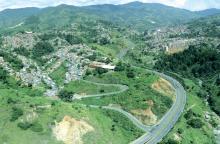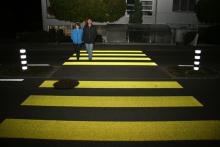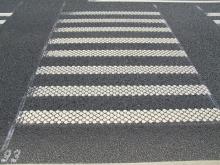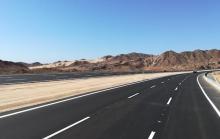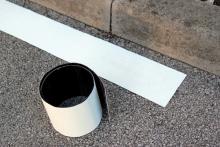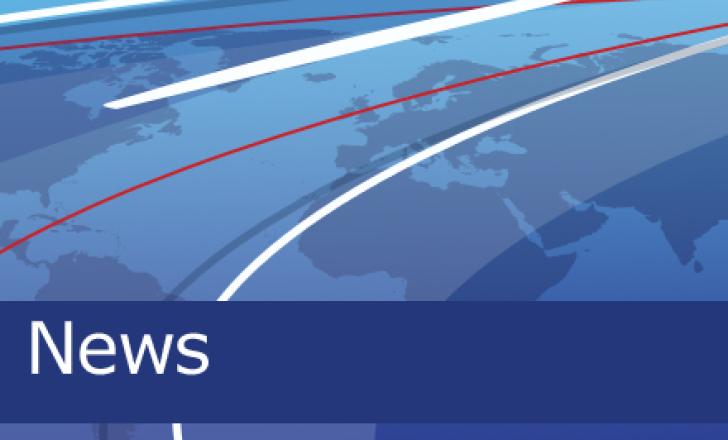
Of the 8,050km of tollway roads in the United States, the Illinois State Toll Highway Authority manages 460km of them.
As part of the maintenance programme for this network of five highways, the Illinois State Toll Highway Authority has partnered with Applied Research Associates to manage and monitor the performance of all their pavement marking programmes, providing recommendations for striping projects.
When searching for a road marking solution that would provide the benefits of a long service life, cold weather application, excellent adhesion to concrete and asphalt and optimal wet night visibility,
The project is to assess the performance of Degaroute-based spray and structured markings to determine the durability, dry retroreflectivity and wet recovery retroreflectivity over the service life. After only one year of the Degaroute markings being applied, data collected by Applied Research Associates are already showing exceptional durability.
The authority said it noticed the optimal wet-night visibility that the Degaroute road markings provided. From this and in 2014, the Authority worked with Applied Research Associates to apply Degaroute spray and road markings to a 1.6km stretch of Interstate Highway 88 as an evaluation project to measure performance over their life cycle.
The evaluation area comprised of two 1.6km segments of skip markings, with each segment separately dedicated to spray and structure pattern.
In preparation for the application of the Degaroute systems, the existing epoxy road markings were ground off the Portland cement concrete surface and grooves were mechanically cut at a 40mil (1mm) depth. One hundred thin film spray skip markings were then applied within the grooves of the first mile of I-88 at a thickness of 30mils (0.75mm), measuring 15.2cm wide by 7.6m long.
Due to the thin application and fast curing capabilities of the spray, the skip lines were completely dry only eight minutes after they were applied.
Following the application of the spray skip lines, Degaroute-based structured markings were applied along the second 1.6km of I-88. Applied at the same count and dimensions, the structure pattern skip lines were extruded into the grooves at a thickness of 100mils (2.5mm) and were completely cured within 30 minutes of application.
The pattern of Degaroute-based structure markings allows for optimal wet-night visibility, using the vertical surface area of the marking to reflect light from oncoming vehicles during inclement weather. Since wet retroreflectivity data values will be measured during the assessment of this project, Applied Research Associates were particularly interested in this application characteristic.
Applied Research Associates will perform annual evaluations throughout the entire “service life” of the Degaroute-based MMA road markings, compiling all data into a final report for use by the authority when deciding which products to specify for striping projects. The final data will include dry retroreflectivity, wet recovery retroreflectivity and overall material presence.
However, since the completion of this application on I-88, Applied Research Associates has compiled a year of data. After enduring a harsh 2014–2015 winter with multiple snowplow events along the Illinois Tollway, the presence of all markings has maintained at a high level.
Dry retroreflectivity readings registered at about an average of 400mcd for the spray skip lines and 550mcd for the structured skip lines. Overall, the wet recovery retroreflectivity for both applications were reported at about 85 mcd and 100 mcd respectively.
“The MMA road marking systems have proven to be every bit as durable as we had heard, looking almost as if they were applied just yesterday,” said Carmine Dwyer, senior engineer at Applied Research.
Applied Research Associates is in discussion with the Tollway to perform an additional test evaluation, applying Degaroute-based road markings to an asphalt surfaced pavement section.

